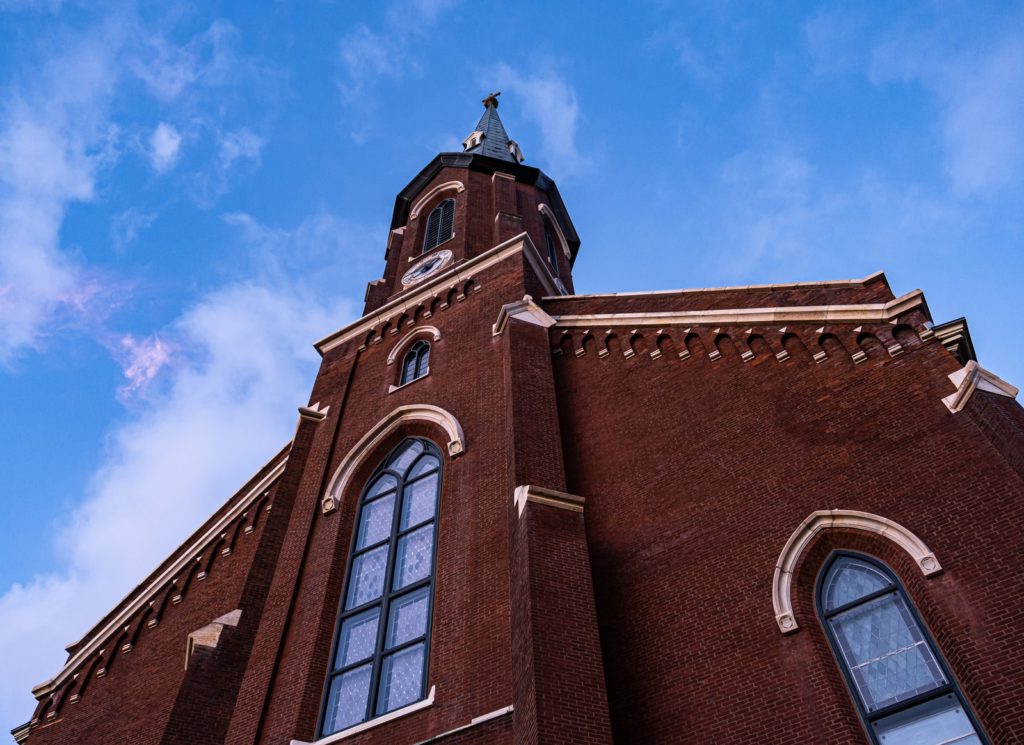Update to this story April 3, 5 p.m. — Gov. Kay Ivey’s office clarified information regarding religious gatherings, including “drive-in” or “drive-up” church services. According to Ivey, religious services are allowed with fewer than 10 people if people keep the 6-foot distance between each other. Drive-in services are allowed if people remain in vehicles entire time, people in each vehicle share same residence, and no one comes within 6 feet of people in other vehicles.
Editor’s Note (added April 2, 8:35 a.m.) — The article written about drive-up church services is in response to countless requests for guidance on whether these services are allowed under the current state guidelines. We have discovered there is no absolute yes or no but that each local area will be responsible for making that decision based on situations and concerns specific to that area. Thank you for being diligent in seeking guidance during this time. The best answer currently is to check with your local law enforcement and provide grace to other churches as their leaders make the best decisions they can for their churches in compliance with their local law enforcement.
By Carrie Brown McWhorter
The Alabama Baptist
You’ve probably seen the pictures or if not pictures, the memes.
Rows of cars lined up in front of a church, musicians singing from the portico, the pastor behind the microphone. Multiple versions of the “drive-in church worship guide” circulating on social media suggest ways to engage: flash your lights on to let the pastor know you’re singing along, turn on your hazard lights to indicate a prayer need or honk the horn in a shout out to Jesus.
As the coronavirus outbreak spread across the U.S. and throughout Alabama, federal and state officials urged people to stay at home and banned gatherings, eventually whittling the number down to gatherings of 10 or more. Church leaders eager to keep their congregations connected began to get creative.
Finding a way to congregate
Many have turned to livestreaming services, but some saw drive-up services as an easy and safe way for people to congregate without exposing people to the coronavirus and the potentially deadly disease it causes, COVID-19. Several churches have put careful thought into each aspect of what needs to be considered to maintain the proper health and safety protocols.
And as Palm Sunday and Easter approach, church members and pastors eager to be together saw the drive-in service as the perfect solution.
Until it wasn’t.
On Tuesday, March 31, Friendship Baptist Church, Springville, which had hosted a drive-in service on March 29 like many other churches around the state, posted a note to its Facebook page:
“After clarification from Governor Ivey’s office regarding her latest order related to COVID-19, we are canceling all plans for future Drive In Church Services. We will return to facilitating worship at a distance through various online and social media applications until we are able to meet back on campus according to our normal schedule.”
A letter by Friendship’s pastor Nicholas Gandy circulated on social media as well.
And suddenly churches across the state were wondering what they should do about their plans for this Sunday and beyond.
Check with local law enforcement if you are unsure
Daniel Atkins, pastor of Taylor Road Baptist Church, Montgomery, had already faced the question. Prior to Alabama Gov. Kay Ivey’s March 26 press conference declaring that all non-essential businesses in the state should close effective March 28, including theaters, auditoriums and concert venues, Atkins and his ministry team were considering drive-in Sunday services for Palm Sunday and Easter. They had a plan to space out cars and broadcast the services on local radio stations.
Atkins tried to get clarification without much success, until a friend in law enforcement contacted the mayor’s office and returned to Atkins with an answer — please don’t hold the drive-in services.
Atkins said after that, his decision was easy.
“Our heart was that our church has a really good reputation in our city, and we didn’t want to do anything to tarnish that,” Atkins said. “We want to serve those who serve us, especially our first responders. If we can ease the burden on them, we want to do that.”
In Atkins’ case, local officials, not state or federal authorities, made the request. A tip sheet from the Alabama Department of Public Health regarding Alabama’s business closures makes clear that local law enforcement is the first group empowered to determine whether a business or venue must close. An attorney for ADPH referred TAB Media to point No. 5 in that information when we asked about church gatherings, drive-in or not.
TAB Media also requested clarification from Gov. Ivey’s office but has yet received no response.
In other news related to churches
Health officials have weighed in with their concerns that Americans, including Alabamians, may be keeping with the spirit of social distancing but not with the seriousness of the situation. And stories are popping up from all over the country of COVID-19 clusters that began at churches — situations related to being inside the church building and unrelated to drive-in services.
In neighboring Georgia, several clusters of COVID-19 cases are attributed to a single infected person attending a church gathering and infecting others. A March 26 statement from East Alabama Medical Center in Opelika, where at least six COVID-19 deaths have occurred, noted that among COVID-19 patients at the hospital, one common factor is that “the last public setting for a sizable number of them was at church. Not at one church, or churches in one town, but at church in general.”
Dr. Lisa Maragakis, senior director of infection prevention at Johns Hopkins, said “canceling events that are likely to draw crowds is an example of social and physical distancing” because staying at least six feet away from other people “lessens your chances of catching COVID-19.”
General guidance from health officials
Other public health officials urge people to stay home as much as possible, and when you do go out, stay at least six feet away from other people.
Dr. Maria Ciminelli, president of the New Jersey Academy of Family Physicians, told NJ.com that guidelines for people to remain six feet apart are meant only for those essential trips outside the home. Any extended, unnecessary contact with people outside the home, even six feet apart, violates the spirit of the precautions.
“If you’re going to practice intense social distancing, it really means avoiding or limiting contact with people outside of your family, and really staying home most of the time, unless you really need to go out,” Ciminelli said. “But any prolonged kind of engagement outside is really still not social distancing, having that prolonged contact with people that are not in your family.”
Dr. Ellen Eaton, assistant professor in the Division of Infectious Diseases at the University of Alabama at Birmingham, echoed that advice.
“Road travel and all other activities should be reserved for only essential activities,” Eaton said.
Atkins said he knows church people, and their tendency to want to greet each other. Another issue churches face when holding a drive-in service — restroom access. So for Atkins, the desire to be responsible members of the community drove the decision to cancel their plans.
“We’ll have our Easter service online,” Atkins said. “And when we can meet again, we’ll have a big blowout celebration.”






Share with others: